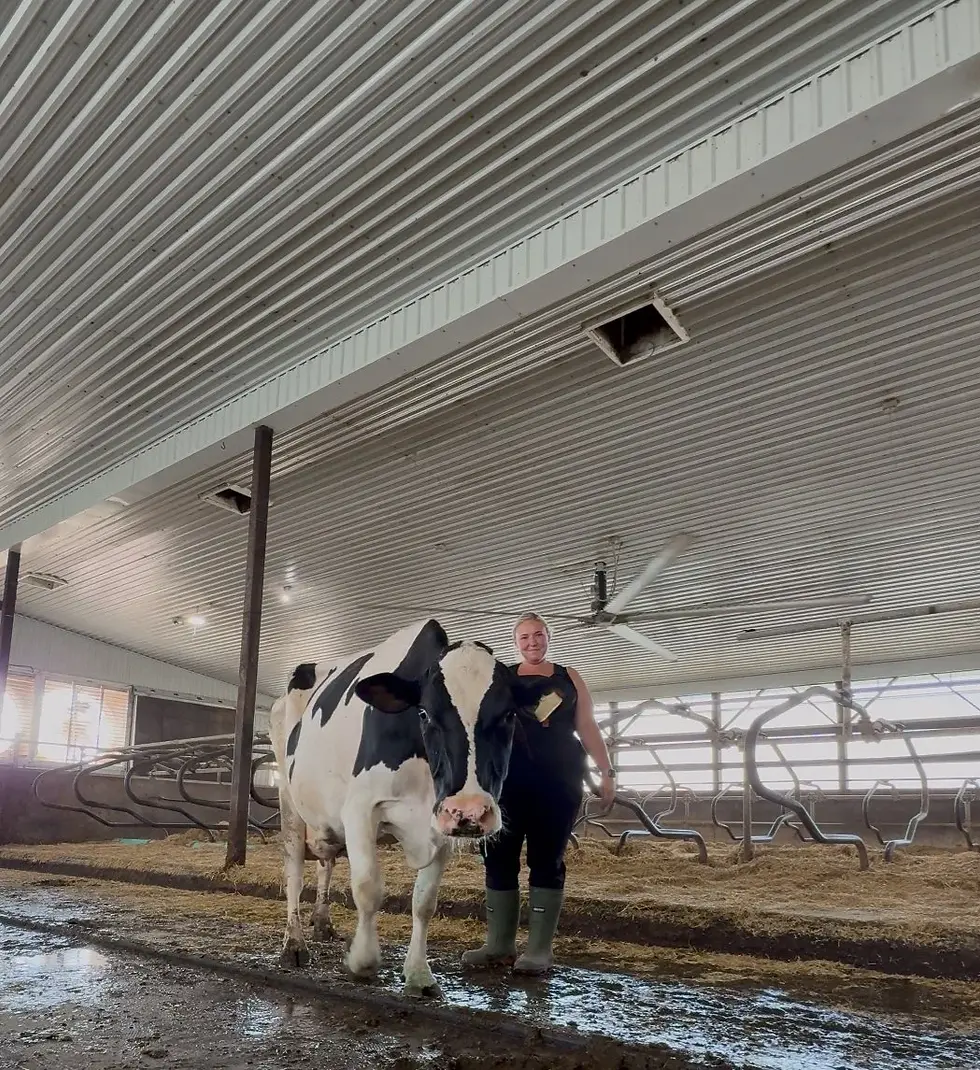Why Agriculture Matters: My Perspective
- Blythe Mackie
- Oct 1
- 2 min read

Agriculture matters because it is quite literally our existence. Without food, we can’t eat — and without eating, well… you know how that story ends. Food drives us. It fuels us. We celebrate with food, we laugh over food, we cry over food, and it gives us the energy to keep showing up every single day.
It’s easy to take this for granted. In Canada, we are incredibly fortunate to have the food system we do. Most of us can walk into a store, grab what we need, and be on our way. But how often do we stop to think about how that food got there? Or how much work and care went into making it possible? Too often, we don’t — and sometimes, we even waste it, tossing out those veggies we didn’t get to in time.
But agriculture is so much more than the food in our grocery cart. Let’s back up and look at just one small piece of the puzzle.
It starts with a farmer. He or she decides to plant a crop, and before that can happen, the land has to be prepared — the right moisture, the right soil conditions, the right timing. Too wet or too dry can spell trouble before a seed is even in the ground. Once conditions are right, the seed is planted using large, specialized equipment. Then, the farmer puts a whole lot of faith into Mother Nature. Rain, heat, sunshine — and then more rain, more heat, and more sunshine. Sometimes crops need a boost in the form of fertilizer, feeding the plants to ensure strong growth. All the while, farmers are watching, checking, and caring for their fields until the crop is ready for harvest.
Let’s zero in on corn for a moment. Some corn is grown for livestock feed. And who loves corn? Cows! Farmers grow this to feed their animals — cows who produce milk, or who one day become beef. (We’ll talk more about cows another time!) Other corn is grown for grain, destined for food production or even non-food industries. Once harvested, this corn might be stored in a bin, trucked to an elevator, stored again, and then transported to its final destination to be processed into something you’ll recognize on your grocery store shelf.
And that’s just one crop, one chain of events, and one tiny corner of the agricultural world. We haven’t even touched the human side of the story — the farm families who care for the land, feed their animals, milk their cows, gather their eggs, harvest their vegetables. The people behind the food.
This is just the beginning, and there’s so much more ground to cover. So tell me — what part of the industry do you come from? Or, if you’re not in agriculture, what would you like to learn more about? Share your thoughts — I’d love to hear from you!




